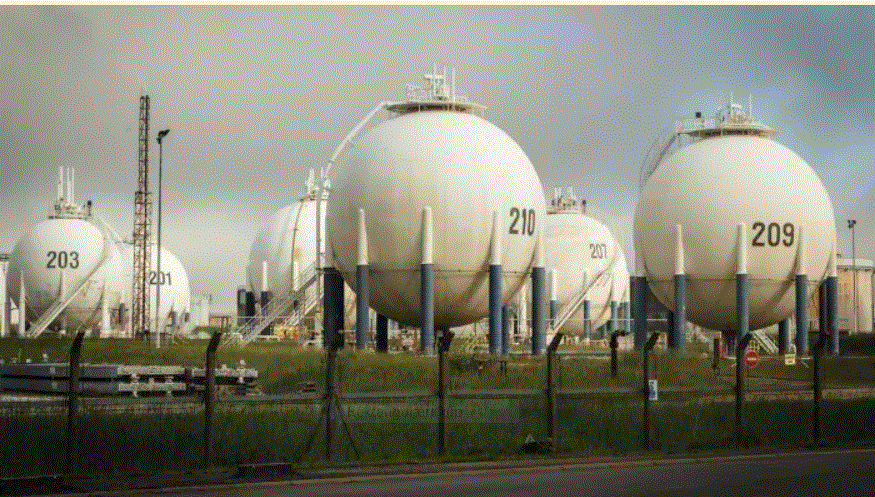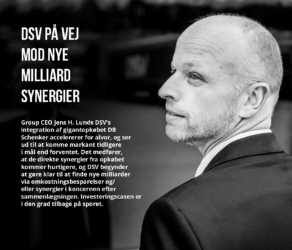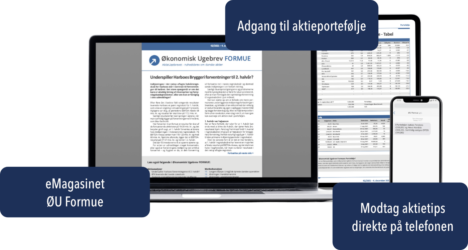Fra Unicredits Erik Nielsen – læs hele kommentaren her
Isolate Russia! With the invasion of Ukraine, it is clear to the vast majority of the democratic world that Putin’s Russia must be stopped and put in a situation from which further military attacks will become more difficult. (There is an important discussion to be had whether that line was crossed already years ago on the occasion of any one of Russia’s previous foreign adventures, but apart from noting – with respect – that German President Steinmeier has offered his mea culpa, I’ll leave that for another day.) For now, the West’s objective is two-fold: To make life for the Russian regime as difficult as possible to weaken the ability to wage war in Ukraine now, and – specifically for Europe – undo years of misguided policy which made the continent dependent on Russian energy.
I have discussed on previous occasions my concerns about ending all energy imports immediately, justified as that surely is on moral grounds. I have argued that it would be unlikely to make a material impact on the key objective of starving Putin of foreign exchange for his war machine unless it were to be supported by all the world’s major powers, while possibly causing greater harm at home.
Having now witnessed the ruble recover beyond its pre-war level, I conclude that this concern has been somewhat validated. EFTA economist Aslak Berg (@BergAslak) has explained the recent ruble recovery in great detail in a series of excellent twitter threads: Basically, it boils down to the combination of Russia’s huge current account surplus (now being boosted by the massive terms of trade gains on account of higher energy prices, the ability to keep exporting to big parts of the world, and the import collapse thanks to the West’s sanctions) and the introduction of capital control and requirements to surrender FX revenue to the central bank.
Paradoxically, while gas is the commodity that would be most difficult (basically impossible in the short term) to divert to other markets if Europe were to stop importing it, the next phase of sanctions will probably still be restricted to oil and coal. This raises additional issues, which I’ll come back to in the section below. But more is coming – and while we are not there yet, the possibility of a future ban on gas has emerged on the political horizon.
Of the original key opponents of shutting down all energy imports from Russia (Germany, Italy, Austria, and Hungary), Italy has shifted sides while the pressure is building in Germany, both domestically and from abroad. Domestically, German public opinion is changing rapidly now, no doubt in reaction to the picture of the horrors caused by Russian troops.
According to an ARD opinion poll published this past week, 45% of Germans now think their government does not go far enough (up by a whopping 18pp since March), while 11% think they go too far (down 3pp), with the share of the population which thinks the present sanctions are about right dropped by 16pp to 37%. In a hard-hitting opinion piece in this morning’s Frankfurter Allgemeine Sonntagszeitung, Gerald Braunberger blasts past German policy mistakes, including on energy, and the lack of courage today in shutting down the energy import (hoping that market forces will quickly sort out the shortages.)
Here, in German: DEUTSCHE KRISENPOLITIK: Mutloser Koloss Meanwhile, the external pressure on Germany is getting sharper. Paul Krugman’s accusation in his NYT piece on Thursday also hit hard but was recognized by many inside and outside Germany as generally fair: Krugman wrote that he is struck by “the contrast between Germany’s current reluctance to make moderate sacrifices, even in the face of horrific war crimes, and the immense sacrifices Germany demanded of other countries during the European debt crisis a decade ago”.
How Germany Became Putin’s Enabler But for an EU (and US) ban on imports of Russian energy to be effective, everyone needs to sign up, starting with all EU member states. It seems a reasonable assumption that Austria will fall into line if the major countries agree, which leaves Hungary as the likely last hold-out. Newly elected PM Orban is striking not only a low-key reluctant tone, but outright defiance of EU policies, including by offering to pay for Russian energy in rubles.
Will Orban change tact? I don’t know, but being the self-declared champion of “illiberal democracy”, and claiming his victory shows the future path for Europe, he seems to have thrown down the gauntlet to the EU on the increasingly starkly drawn battle between liberal democracy and something “illiberal” or outright autocratic. The irony of Orban’s EU-defiant policies, of course, is that Hungary has been the single biggest beneficiary of EU policies across most fields:
It has been the largest recipient of direct EU financial support for years (as a share of GDP), and arguably the single biggest beneficiary of FDI from the rest of Europe. Since Orban took office (for the second time) in 2010, Hungary has received no less than EUR 46.5bn in EU funds, almost 4% of annual GDP and more than any other country, contributing up to 0.5pp per year to Hungary’s annual average GDP growth of 2.4% during this past decade, on estimates by my colleague, Dan Bucsa.
Since 2003, when Hungary voted (with 84%) to join the EU, the country has received no less than EU 94bn in FDI, predominantly from the rest of the EU, making it a major hub for the auto industry, including in recent years for electric vehicles and battery production. The Hungarian government often emphasizes the importance of China, but Chinese companies account for only some 5% of total FDI. Nevertheless, Orban has gradually shifted Hungarian politics away from the rest of Europe, including in areas of institutional independence from party politics and the rule-of-law, as widely reported in the media in recent years.
This past week, following Orban’s decisive victory, the European Commission formally notified the Hungarian government that it is initiating rule-of-law disciplinary procedures. The FT leader called on the EU to “keep up ratcheting up its pressure, in particularly through its tools to withhold money and investigate corruption.
The war in Ukraine should not distract from Orban’s abuses out of misguided desire to keep him onside. It is precisely because western unity is imperative that unity cannot be bought by betraying western values”, wrote the FT: Hungary’s illiberal leader wins a fourth term At risk to Hungary is more than EUR 40bn in EU grants during the next six years (i.e. the EU’s 2021-27 budget), including EUR 7.2bn as RRF grants.
Including the EUR 9.7bn in cheap RRF loans on offer, it’s a cool EUR 50bn gamble that Orban is making with his EU defiant policies, including roughly EUR 3bn this year. Where this one lands, I don’t know, but – as noted – with Russia’s invasion of Ukraine, the line between liberal democracies and autocratic regimes has been drawn much more visibly for the general public as well as for Europe’s political leaders.
In the past, Hungary could count on protection from Germany and Poland. The German auto- and auto-related industries are known to have lobbied Angela Merkel and her government to go easy on Hungary, as the government moved away from the values of European institutions towards “illiberal democracy”, as Orban calls it. I’m not sure those calls will be heard to the same extent by the new government coalition in Berlin, given the remarkable shift in Germans’ approval ratings of key government officials.
Opinion polls this past week saw a 7pp and 3pp increase in Robert Habeck’s and Annalena Baerbock’s approval ratings to 54% and 53%, respectively, while finance minister and FDP chief Christian Lindner suffered a 10pp decline to 39%. Chancellor Olav Scholz saw a decline of 5pp to a still robust 51%. Meanwhile, Hungarian relations with Poland have come under severe constraints given the two governments’ diametrically opposite views on Putin and Russia.
More broadly, as EU sanctions get tougher, the impact on individual EU members will differ quite markedly and could become increasingly problematic for some countries. At a dinner this past Monday, I discussed this issue with Angel Ubide (of Citadel and many other fine things). He argued – persuasively – for a common mechanism to share the financial pain because, as he noted, this is economic warfare, and to win a war, the allied forces need a substantial degree of solidarity.
Importantly, to be effective, a common mechanism needs to be in place before the economic fallout of further sanctions materializes. If it becomes operational too late (or not at all), one should expect additional – and probably disruptive – volatility in markets, starting with the sovereign debt market. This would be particularly troublesome at a time when the ECB has decided, apparently, to end all QE. While the message from Frankfurt has been seasonably consistent that excessive volatility or spread widening to an extent that the transmission mechanism is at risk, will not be tolerated, such market disruptions are a whole lot easier – and cheaper – to fight if the toolbox is already there, announced and with the lid open.
As I have argued before, this speaks to the need to keep the stove simmering on low heat, rather that turn off QE completely. (And yes, if need be, raise rates even if there’s a bit of QE still going!) So far, the messages out of the European capitals and Frankfurt on these policy issues have been disappointing, but things may change – if, as usually, a bit on the late side. We shall see.













